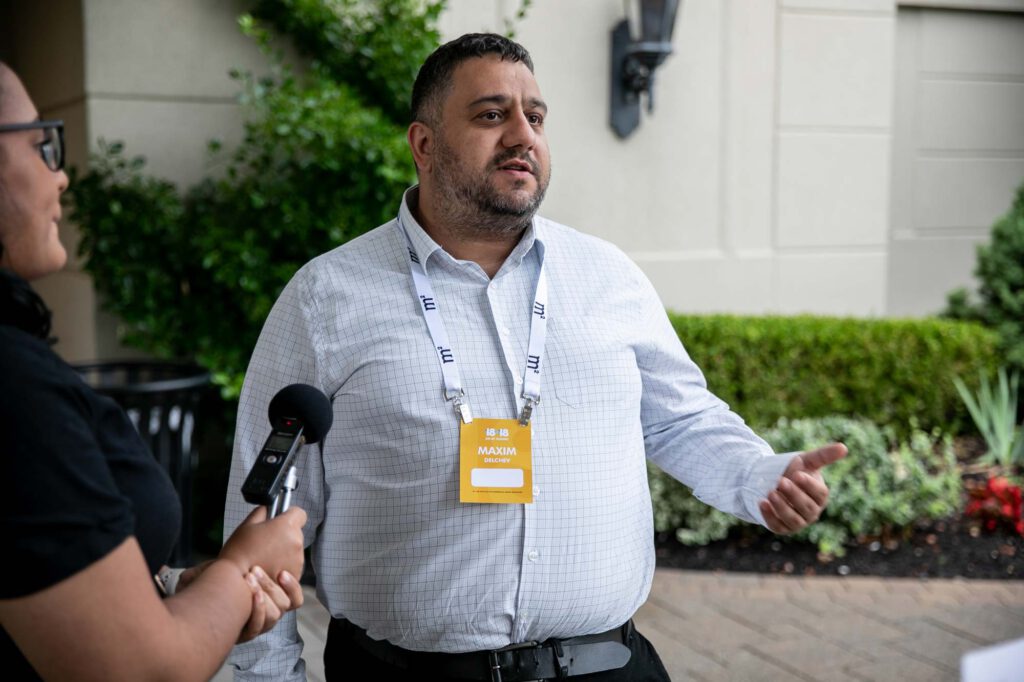After the fall of Communism, the Bulgarian Jewish community set out to rebuild itself with a large focus on economically supporting elderly members and Holocaust survivors. The community’s main educational engine was a Jewish summer camp, which serves hundreds of children each summer, as well as a small kindergarten.
Then, several years ago, the community decided to expand their kindergarten. When they turned to the Lauder Foundation for support, the organization asked them if they wanted to open a Jewish school as well.
“We had never considered opening a school before,” says Maxim Delchev, Director of Jewish Education in Bulgaria and M² Senior Educators Cohort (SEC) alumnus. “There’s a big difference between running a summer camp and an official school in the middle of Sofia.”
Pursuing the Jewish day school of their dreams
The community decided to embrace this game-changing opportunity — and Delchev, the first person to hold his position in the Jewish community since the 1930s, was at the helm of the exciting project. While it was a big leap of faith for the community to launch a school, it offered Jewish educators the opportunity to start with a clean slate and let themselves dream big.
The community spent a year working on the vision and logistics, asking meaningful questions like, what kind of Jewish education do we want to teach? What kind of leaders do we want to develop? What values do we hope to instill in our children and in our community?
In the midst of building the Lauder Day School — the first formal Jewish educational institution in decades, Delchev also joined M²‘s SEC. Alongside leading Jewish educators from across the world, Delchev found a framework to explore some of these questions and to consider the different types of education that the community could impart at camp and at school.
“There are certain educational goals you can’t achieve through a camp setting alone. While our camp was doing wonderful work with experiential education, there’s education that should happen at a school and there’s education that should happen at a camp,” says Delchev. “M² has helped me bridge the two kinds of education, experiential and formal, in ways that complement each other rather than compete.”
Delchev’s M² experience also helped him realize how much Bulgaria’s small community had accomplished on their own, and how they could continue to grow, without having to outsource their educators.
“We used to bring people from abroad to teach, but then we realized that we don’t need people to fly in, teach for a month, and leave,” Delchev says. “We need to invest in our own people and train them, so that we can strengthen our identity and grow together.”
M²’s curriculum has helped Delchev understand the educational theories behind experiential education and share those learnings with burgeoning community educators. He hopes that many more Bulgarian Jewish community members will take part in M² programming and events.
Exploring universal Jewish questions
Delchev says that because he came from a newly relaunched community, he used to feel that the Bulgarian Jewish community was “lacking,” compared to more established Jewish communities.
But the diversity of his SEC cohort helped him realize that almost every Jewish community around the world is dealing with the same questions: What does it mean to be Jewish? How do we express our Judaism, and in what ways? How do we connect Judaism to the outside world and the things that are happening around us? How do we connect to the State of Israel? And How do we stay connected to our memories and our histories?
Today, the Lauder Day School serves 200 students from kindergarten through eighth grade. The community is currently building a new campus that will house both the school and JCC, which Delchev believes will further strengthen Jewish identity and connection.
“Thirty years ago, we knew very little about Judaism,” he says. “Back then, Bulgarian Jews wanted to learn how to light Shabbat candles. Now that we know how to light the candles, we can have much deeper discussions. We can ask: What’s the meaning behind this tradition? What makes it special for my family and me? We have the opportunity to engage community members in ways that are meaningful to them.”
Maxim Delchev is the Director of Jewish Education in Bulgaria and Chair of the Central Israelite Religious Council in Sofia. He is an M² Senior Educators Cohort 5 alumnus.
